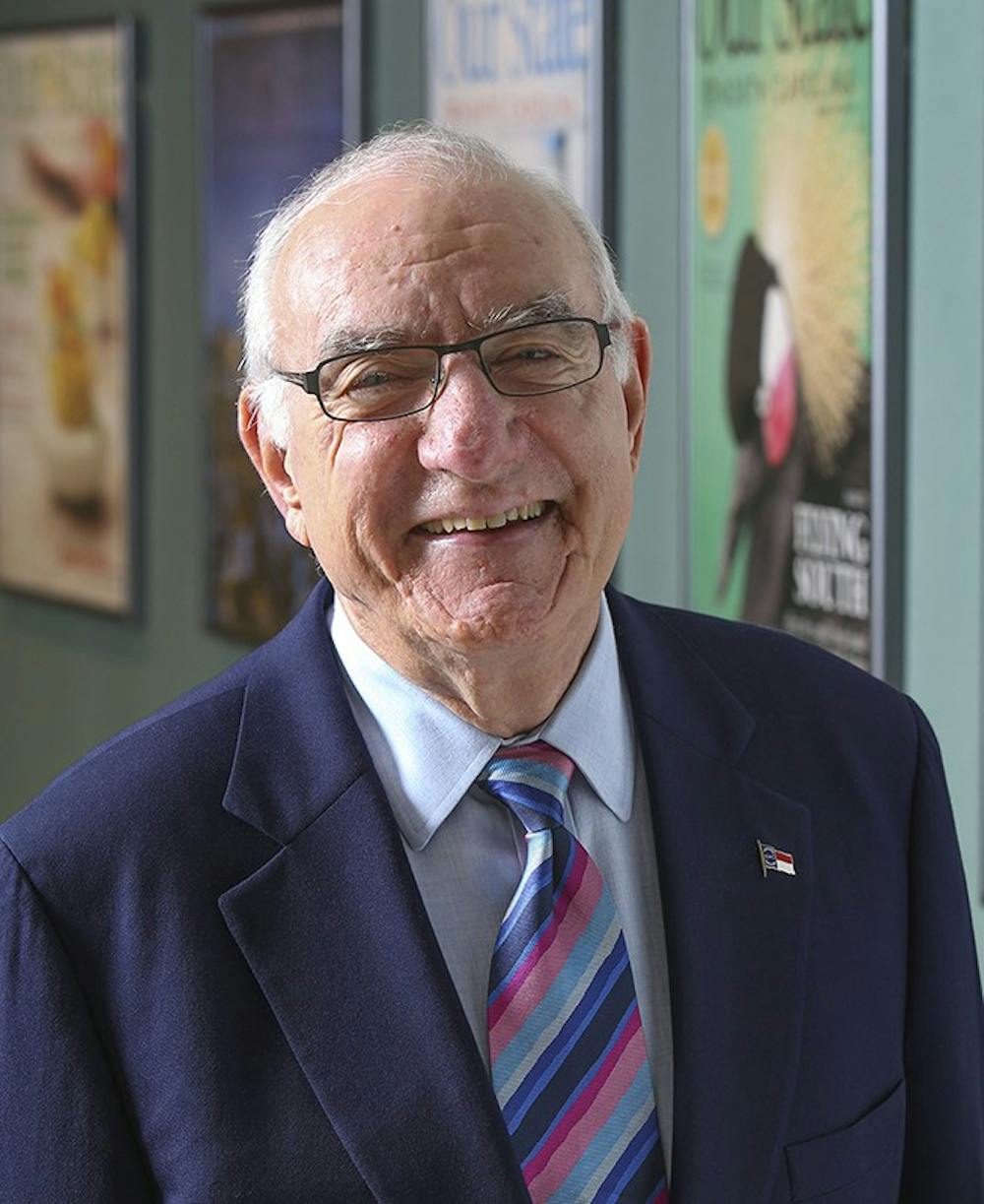This article was originally published in the June 21 edition of The Business Journal Serving the Greater Triad.
GREENSBORO — It’s an understatement to say 2013 is a big year for Bernie Mann, publisher of the award-winning Our State magazine. Not only was Mann bestowed with the prestigious Order of the Long Leaf Pine by Gov. Bev Perdue in January, he recently celebrated the 80th anniversary of Our State in grand style at the N.C. Museum of History June 8.
Mann took over as publisher of Our State in 1996 after a 25-year career in owning and operating radio stations, and the publication, known for its vivid photography and colorful features, has since increased its circulation nearly eight-fold, with an 87 percent renewal rate.
You might think that Mann, having accomplished so much at 77, would be ready to close out his lengthy career. Think again. This passionate New York native has no plans to retire — ever.
Q: What does Our State’s 80th anniversary mean to you?
Anything that’s 80 years old — a person or a business — is something special. It’s a tribute not just to longevity, but to the fact that this magazine has become an important vehicle for people to enjoy. When I bought it, Our State had 23,000 paid subscribers. Today we have 179,000 paid subscribers at a time when many magazines are going out of business. Here we are with this marvelous situation of 80 years and getting better every month — not because I say so, but because the people who read it say so. It’s a very thrilling time.
Q: What do you find most important about providing readers with a magazine that celebrates North Carolina?
The idea is to show the people of North Carolina how wonderful their state is. The most important part, if there’sgot to be any single thing, is always content. We always said we’re never going to publish anything negative. Ever. For example, we don’t review restaurants — we tell about restaurants. I think it’s important to have a place somewhere, in this unfettered world of bad news, difficulty and frustration, where you can sit for two and a half hours and have nothing but pleasure.
Q: Where do you think the magazine industry is headed in the future?
It’s sad that people are finding ways to put more advertising into magazines and less editorial because that’s the expensive part. I think of Procter & Gamble — what if they put out a box of Tide with a sticky note on it that says, ‘Business wasn’t good so we didn’t put as much detergent in the box this month’? You can’t do that. You’ve got to give more.
Q: You were bestowed with the Order of the Long Leaf Pine in January. Past recipients include Maya Angelou, Michael Jordan and Bob Timberlake. How do you feel about being included?
I’m flattered of course, but I know it’s because of the magazine. I know it’s because of the incredible abilities of [editor-in-chief] Elizabeth Hudson and all of the writers and photographers we have — that’s what it is. I have it and I’m proud of it, but I don’t think it’s just for me.
Q: You currently serve on the board of directors for the N.C.Arts Council. Why are the arts important to you?
The arts are the lifeblood of a community. The N.C. Arts Council has a budget given to us by the state to make sure the arts flourish, but not by just giving the money away willy-nilly. We’re very careful and it’s a big part of what we do because I feel very strongly that the quality of life — the reason why North Carolina is so special — is because of the uniqueness of where we are, what our people want and what they do, and the arts are a reflection of that.
Q: Before your career in publishing, you owned and operated 12 radio stations in North Carolina, Virginia and Arkansas. What caused you to switch?
It wasn’t as much my decision as it was the fact that the government changed the rules. For years, any one entity could own seven AM and seven FM radio stations. But then they took the rule away and said you can own as many as you want. That never happened before. Now you’re up against public companies, and for an individual like me, it wasn’t a fair game. I couldn’t play that game, so I looked for something else to do.
Q: If you could be a performer in any type of music genre, what would it be?
I love Dixieland jazz. I think it affords you the chance to have some of your own expression with the melody. That would be fun to do.
Q: What’s the best advice you’ve ever been given?
Have a good time at what you’re doing. Someone told me that early on, and I’ve tried to replicate it in the culture of my company. We only want people who look forward to coming to work and see the eight or nine hours as something pleasurable, enjoyable, interesting. That doesn’t mean there isn’t frustration. But by and large, if you can say to yourself, ‘I look forward to coming to work,’ you’re way ahead of the game.
Q: Where do you see yourself in five, even 10 years?
I love what I’m doing. That’s why I’ll never retire. I think I’ll be constantly on the move because I like to wander around. I like to be accessible. I like to be visible. I think you can be a much better leader that way. There’s a big difference between a leader and a manager: A manager is designated, whereas a leader makes people feel emotionally that they want to follow you. It doesn’t come easily. So what am I going to be doing? I’m going to be Rudyard Kipling’s water boy. That’s my role.


